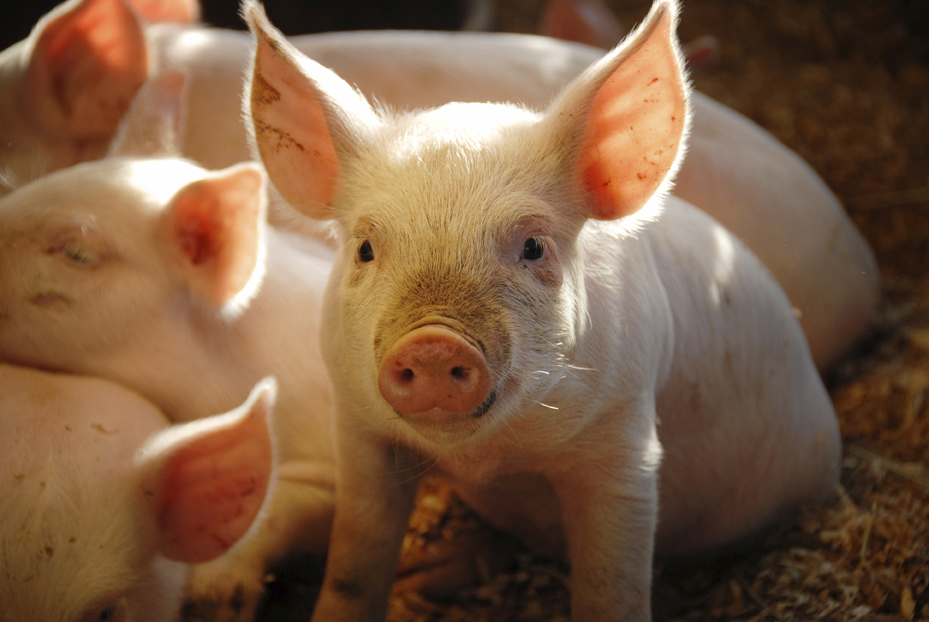
Porcine Services
Up-to-date knowledge of hog health and breeding management are essential in raising a healthy herd and optimizing production. We all must do our part in producing quality, healthy animals, both for the animals’ sake and for the American consumer. Creston Large Animal has the equipment to help you optimize your animals’ health and be more productive as well.
Herd Health & Analysis
Depending on what you're doing with your herd, this can make or break your operation. By developing a vaccination schedule, you will be spending a little now on preventative health and saving yourself from doctoring cattle all year long. The chance of picking up a virus could put a dent in your herd, or many of your cows could abort and you lose your entire profit for that year. We will help you be proactive and only vaccinate for the things that you need.
There are several DNA tests you can perform on your livestock. Testing can be done for simple traits such as coat color and recessive genetic defects. There are also several parentage tests you could use, which not only identifies pedigree integrity in the seed stock industry, but identifies problematic sires in commercial herds to protect your cattle. If you're interested in testing your herd, contact Creston Large Animal to help decide your next step.
This is a common procedure that should be decided at a fairly young age. The younger the male, the less severe the procedure is. You can use an elastrator if the testicles are small enough; if they are too big they can be surgically removed.
These are usually diagnosed by a vet with a physical examination. They are easily reducible, not painful, and have no evidence of present infection. Hernias can be hereditary or can be from an umbilical infection that goes unnoticed.
Certificates of Veterinary Inspection
This plays a big role in preventing the spread of animal diseases across state lines. State agencies have created rules and regulations that govern the importation of livestock and other animals. It helps keep animals healthy and slows down bring new diseases in new areas. Creston Large Animal can help you with CVI to insure healthy transport.
Having the proper vaccination schedule is crucial to swine health. Your swine will be much more profitable and doctoring of pigs will be greatly lowered. If your hogs are exposed to anything, you should vaccinate to protect your animals.
Breeding Management and Reproduction
Livestock producers should seriously consider getting a breeding soundness exam (BSE). The examination is conducted on bulls prior to the breeding season to assess their reliability and capability as breeding animals. This is arguably the best money swine producers will spend on an annual basis to protect their animals. We sometimes try to save money by not spending it, but conducting a BSE is a prime example of how to save money in the long run by spending a little up front.
The fertility of a boar is influenced by a number of things. If you're planning on using your boar consistently, it may be a good idea to get a semen evaluation done so you know how fertile he is (how effective he is at getting sows pregnant). This can make your operation very profitable or a losing battle. If you’re tending to an entire sounder but only get a few litters a year due to a boar's low sperm count, the cause of your herd not being profitable could have been forseen with a semen evaluation. Something so simple can make a huge difference.
Frozen semen is a good option for breeding hogs. It is collected and then packaged in straws laneled with the boar's name. After straws are harvested they are put in what’s called a semen tank. This tank is full of nitrogen which keeps the semen frozen and preserved. Straws are handled with straw tweezers, and fingers can be protected from nitrogen burns by wearing thin gloves.
A cesarean is an incision made through the uterus in order to deliver the piglets. C-sections are necessary in sows when vaginal delivery is too difficult - such as it can be with dystocia - and when the litter is not progressing in the expected amount of time, therefore endangering the piglets or the sow. Your vet can do this procedure to protect your investment and for the health of your animals.
what we offer
Bovine
Heard Health and Analysis
- Formulated Vaccination Schedule
- Mastitis & Milk Quality Assessment
- Cosmetic and Electric Dehorning
- DNA Testing
- Castration
- Umbilical Hernia
- Certificates of Veterinary Inspection
- Immunization Protocols
Breeding Management and Reproduction
Small Ruminant
Heard Health and Analysis
- Formulated Vaccination Schedule
- Mastitis & Milk Quality Assessment
- Cosmetic and Electric Dehorning
- DNA Testing
- Castration
- Umbilical Hernia
- Certificates of Veterinary Inspection
- Immunization Protocols
Breeding Management and Reproduction
Camelid
Heard Health and Analysis
- Routine Health Examination
- Routine Immunization Protocols
- Strategic Deworming & Fecal Egg Counts
- Foot Trimming
- Castration
- Certificates of Veterinary Inspection
Breeding Management and Reproduction
Porcine
Heard Health and Analysis
- Vaccinations
- DNA Testing
- Castration
- Umbilical Hernia
- Certificates of Veterinary Inspection
- Immunization Protocols
Breeding Management and Reproduction
